Ever found yourself wondering, "Can dogs eat nuts?" Those crunchy little morsels can be mighty tempting to share with our furry friends. But before you start tossing them a handful, let's talk about what's safe and what's not. I'm here to tell you everything you need to know about nuts and your four-legged friends.
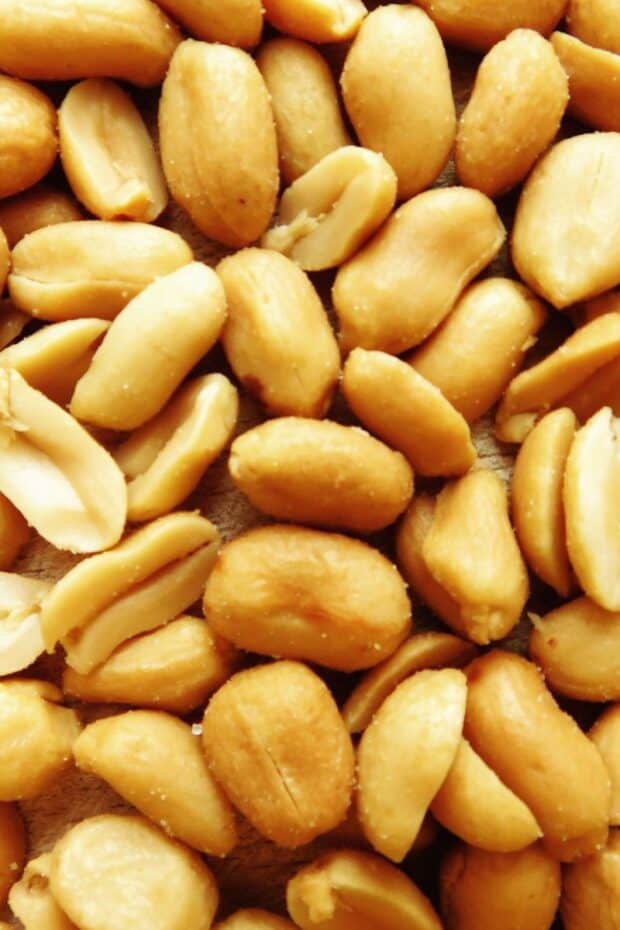
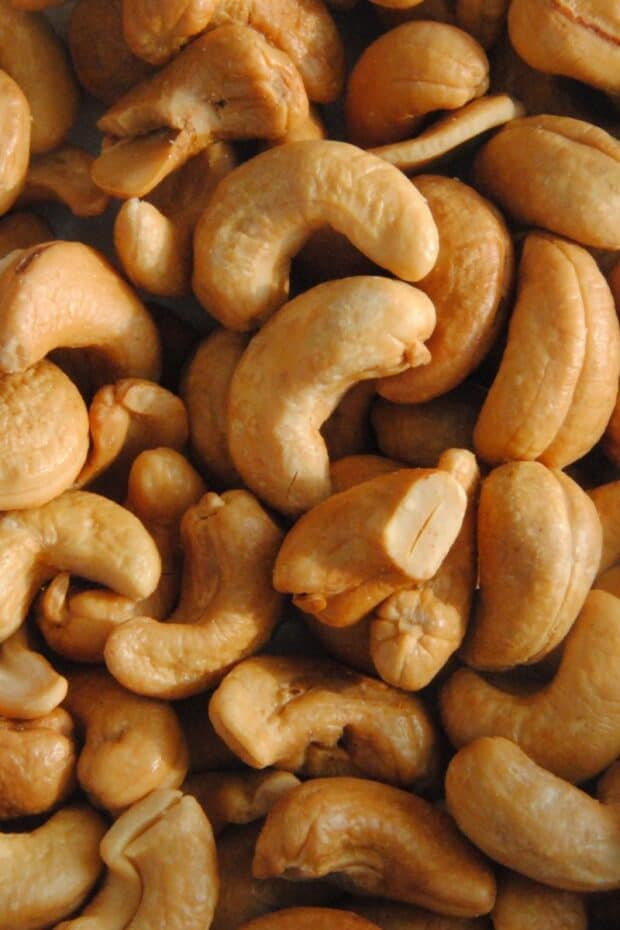
What Nuts Can Dogs Eat? Safe Nuts for Your Pooch!
Let's talk about dog-friendly nuts! Peanuts and cashews take the crown here, folks. They're packed with protein and healthy fats, making them an awesome choice for your pup's snack time. Just remember, moderation is key. Stick to unsalted, unseasoned nuts to keep things safe and tasty for your furry friend.
Protein:
Both peanuts and cashews are excellent sources of plant-based protein, which is essential for muscle development, repair, and overall health in dogs. Protein also plays a crucial role in supporting a strong immune system.
Healthy Fats:
These nuts contain healthy fats, such as monounsaturated and polyunsaturated fats, which can contribute to your dog's coat health and skin condition. Omega-3 and omega-6 fatty acids found in nuts like cashews may help reduce inflammation and support heart health in dogs.
Vitamins and Minerals:
Peanuts and cashews contain various vitamins and minerals that can benefit dogs, including vitamin E, niacin, magnesium, and phosphorus. These nutrients play important roles in maintaining healthy bones, teeth, and metabolism.
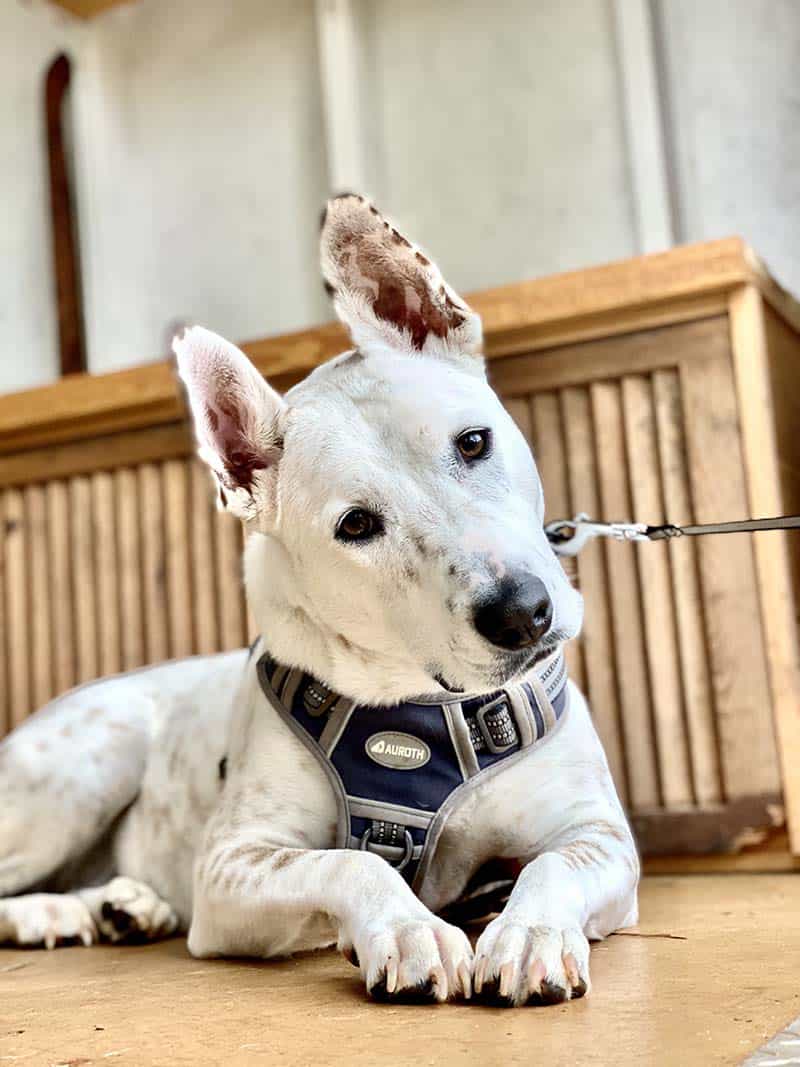
What Nuts Can Dogs Not Eat? Nuts to Keep Away from Your Dog!
Now, onto the nuts to steer clear of. Macadamia nuts? Not for dogs. These bad boys can wreak havoc on your pup's tummy, causing all sorts of unpleasant symptoms. And walnuts? Yeah, those are a hard pass too—they've got a toxin that's a big no-no for dogs. Almonds? They might seem innocent, but their tough texture can pose a choking hazard. Better safe than sorry, right?
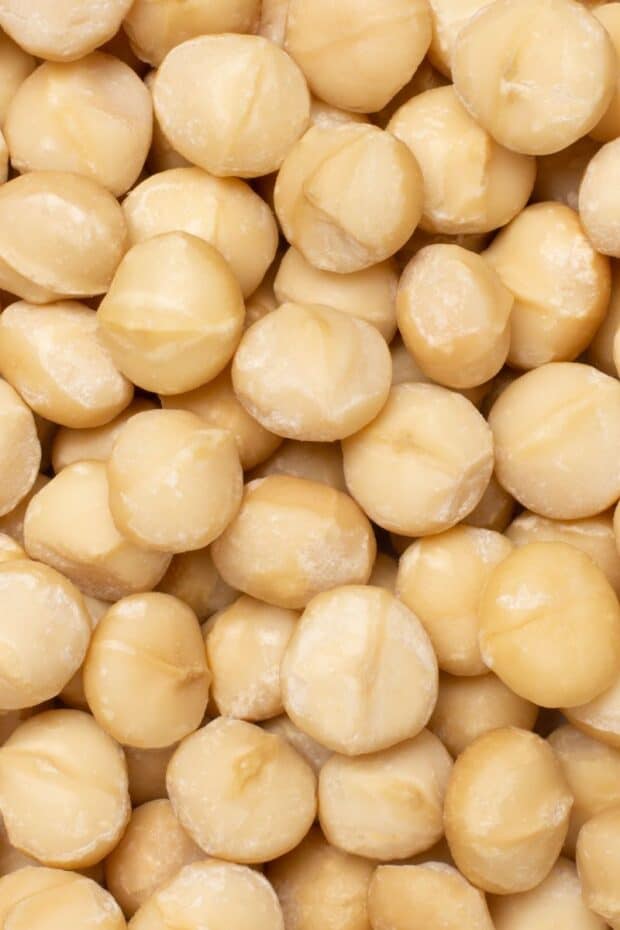
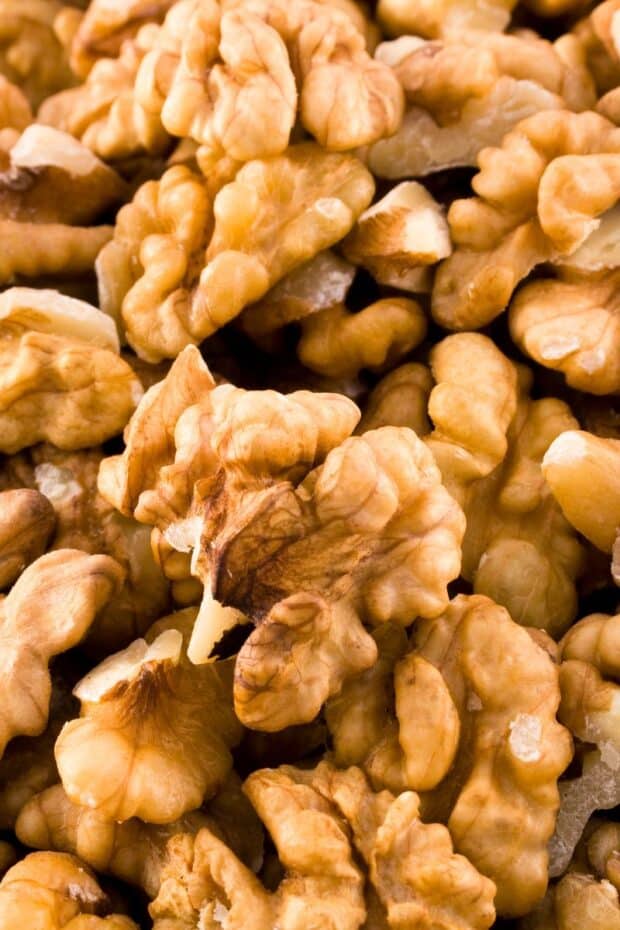
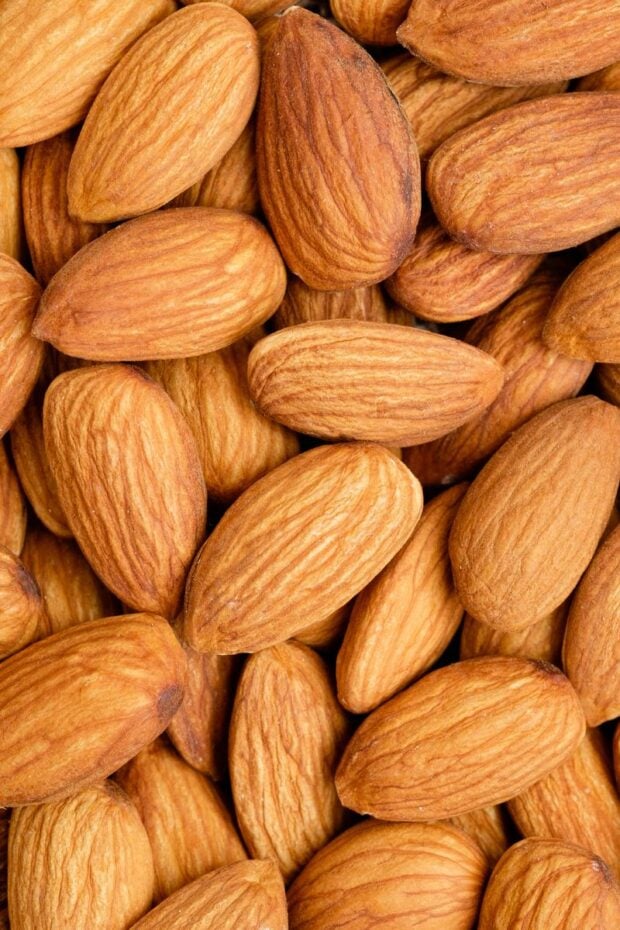
What Are The Risks and Considerations with Treating Your Dog Nuts?
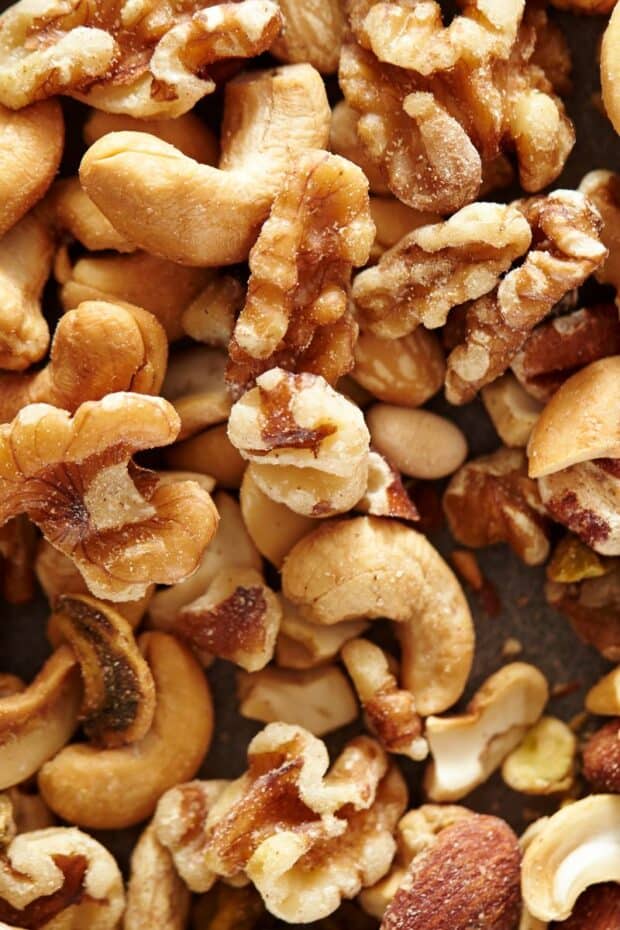
Before you go nuts with nut treats, there are a few things to keep in mind. Choking hazards? Yep, that's a real concern, especially with bigger nuts. Keep 'em small and manageable, or opt for nut butter spread thinly on a toy. And let's not forget about allergies. Some pups might be sensitive to certain nuts, so keep an eye out for any itching, swelling, or tummy troubles.
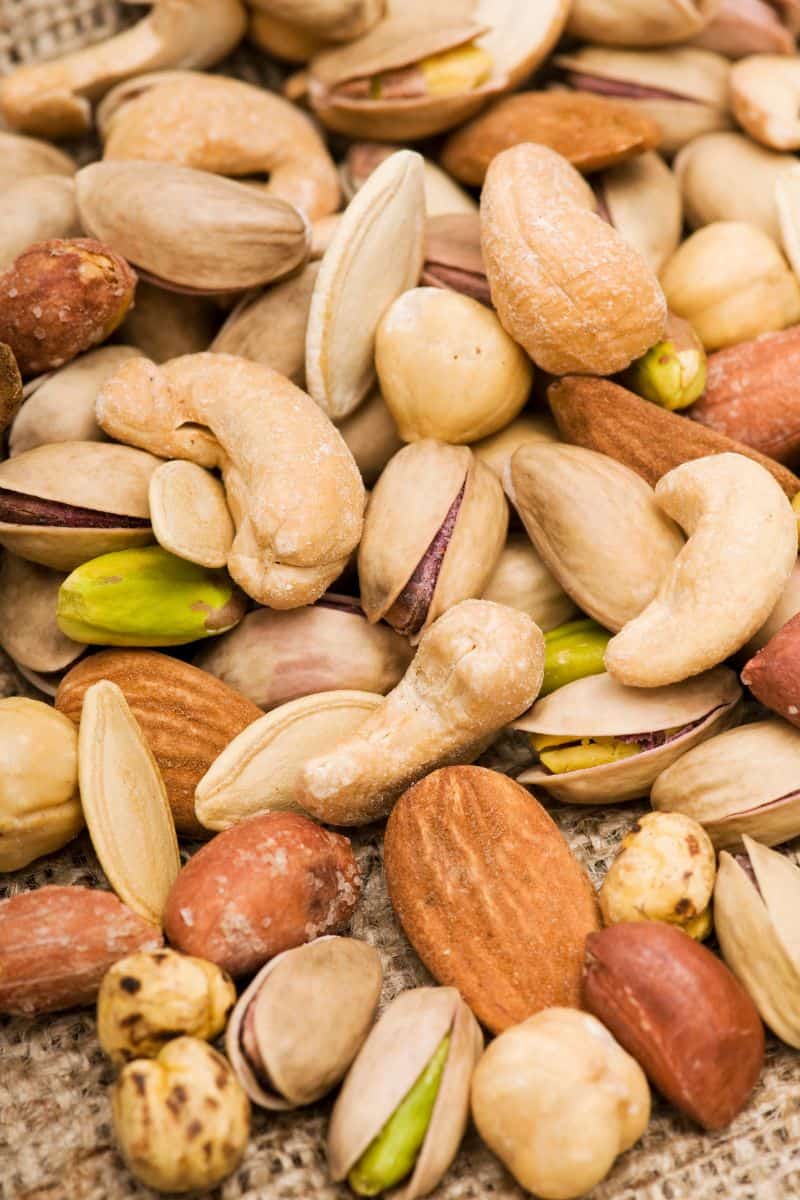
Signs of Nut Allergies in Your Furry Friend
Identifying if your dog is allergic to nuts requires careful observation and monitoring for any signs of allergic reactions. Here are some key steps to help determine if your dog has a nut allergy:
Watch for physical symptoms.
Keep an eye out for any physical signs of an allergic reaction in your dog after consuming nuts. These may include itching, redness, swelling (especially around the face, muzzle, or paws), hives, or skin rashes.
Note respiratory changes.
Allergic reactions can sometimes affect the respiratory system, leading to symptoms such as coughing, wheezing, difficulty breathing, or nasal discharge. If you notice any of these signs, it could indicate a more severe allergic reaction. Call your vet immediately.
Monitor digestive health.
Pay attention to your dog's gastrointestinal tract for any signs of upset stomach or digestive issues after eating nuts. Symptoms such as vomiting, diarrhea, excessive gas, or abdominal discomfort could indicate a food allergy.
If you suspect that your dog may be allergic to nuts or if you notice any concerning symptoms, it's essential to seek veterinary advice promptly. Your vet can conduct allergy testing or recommend an elimination diet to determine the specific allergen and develop a suitable treatment plan.
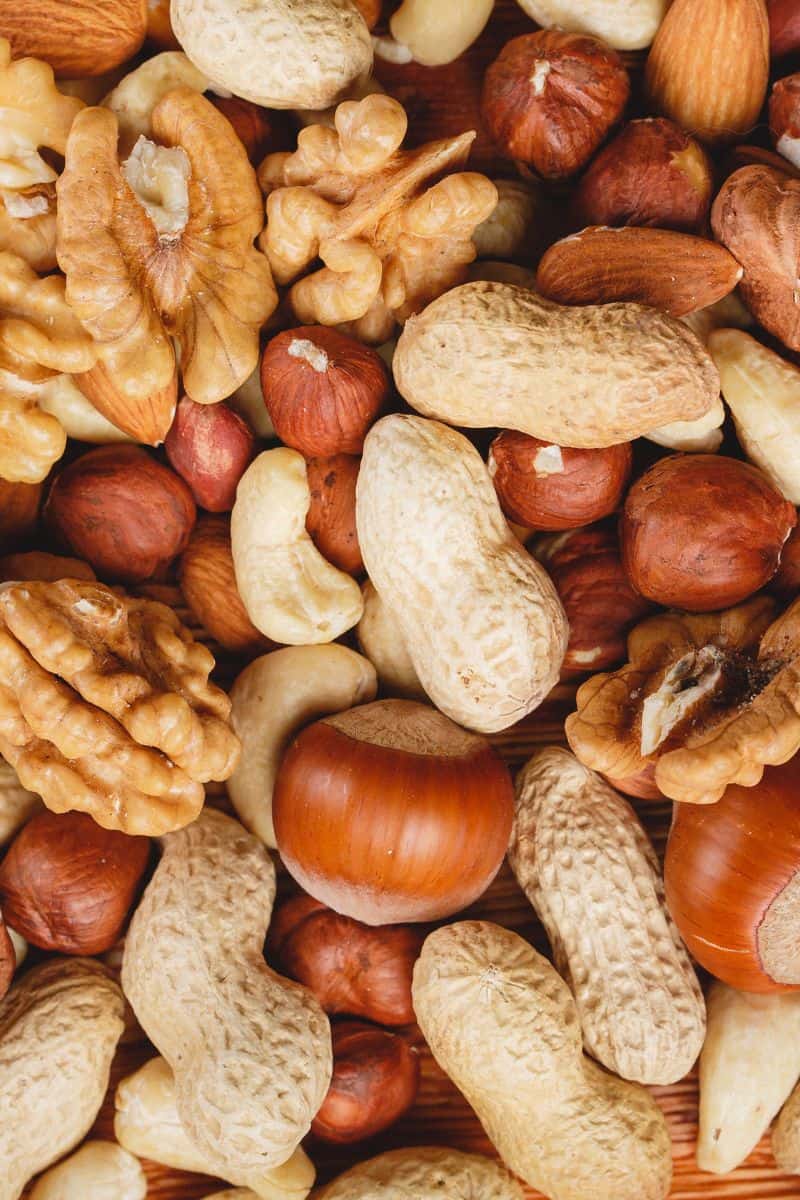
More Recipes That Your Pup Will Love
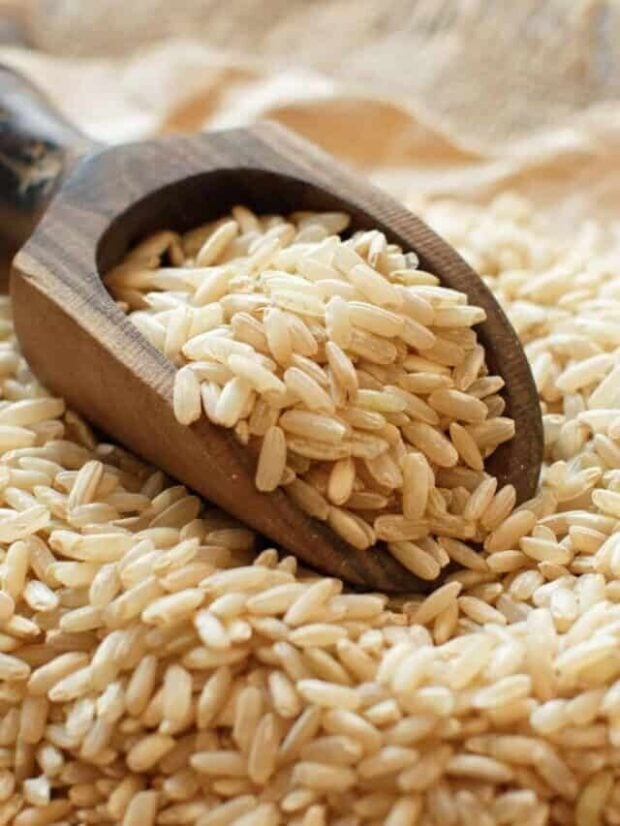
Can Dogs Eat Brown Rice? Homemade Meals That Your Pups Will Love!
Many dog owners wonder: can dogs eat brown rice? I have all the answers, nutritious facts, and recipes for you here!

Frozen Watermelon & Coconut Oil Dog Treats
Can dogs eat watermelon? Of course! There are few treats that dogs enjoy better than a sweet, cold chunk of summer melon.

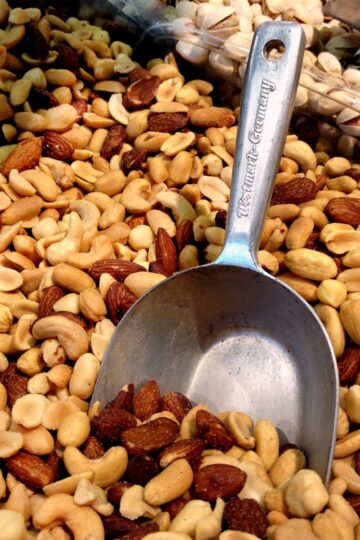



Leave a Reply